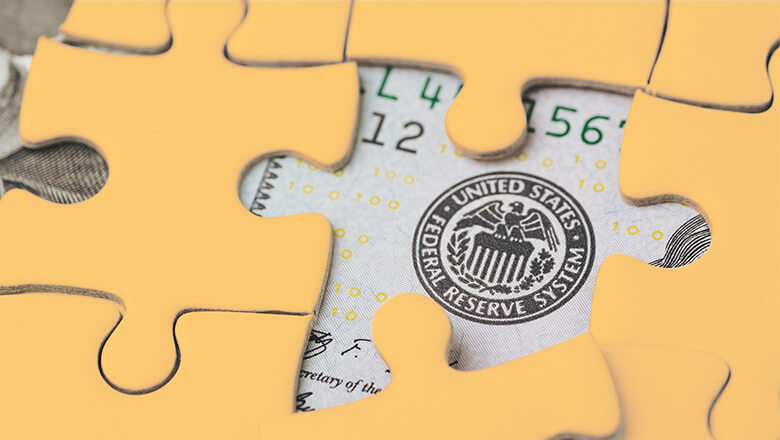The Fed Is Raising Rates: How Does That Impact Your Finances?
Up Next
The Federal Reserve is planning to raise interest rates by 75 basis points this week. The central bank has already hiked rates four times this year, for a total increase of 2.25%. By raising interest rates, the Fed hopes to slow spending and raise the cost of borrowing in a bid to curb high inflation.
According to the Bureau of Labor Statistics, the inflation rate was at 8.3% in August, year-over-year. Although this is lower than the 8.5% observed in July, it’s still at its highest level in decades. In a nutshell, this means the prices of goods rose 8.3% on average compared to a year ago.
Why Interest Rates Matter
When people refer to “interest rates” in this context they are referring to the federal funds rate, which helps govern the rate that banks charge each other for overnight deposits. Although the federal funds rate directly impacts banks, it also has lots of trickle down effects for consumers.
For example, a higher federal funds rate can lead to higher interest rates for mortgages, private student loans, credit cards, car payments, personal loans, and more.
We can already see evidence of this in the 30-year fixed-rate for mortgages. The 30-year mortgage rate recently hit 6% for the first time since the Great Recession. That’s nearly double what it was one year ago.
What This Means For You
As of right now, inflation remains sky-high. This means that you can expect prices to keep climbing for staples like groceries, rent, and other everyday items.
Additionally, since the Fed is raising rates, you can expect the price of borrowing to get more expensive as well. This means it will cost you more in interest when taking out a student loan, financing the purchase of a car, mortgage, or other types of credit.
That said, there is some potential good news on the horizon for consumers. First, higher interest rates should eventually lower inflation which should stop things from getting more expensive. Second, higher rates can help you earn more money on your savings deposits. In some cases, online savings accounts offer rates as high as 2.5%. It’s important to routinely evaluate your finances, particularly when rates are rising.
*Fixed rates range from 3.99% APR to 8.24% APR with 0.25% autopay discount. Variable rates range from 3.24% APR to 8.24% APR with a 0.25% autopay discount. Unless required to be lower to comply with applicable law, Variable Interest rates on 5-, 7-, and 10-year terms are capped at 8.95% APR; 15- and 20-year terms are capped at 9.95% APR. SoFi rate ranges are current as of 1/21/22 and are subject to change at any time. Your actual rate will be within the range of rates listed above and will depend on the term you select, evaluation of your creditworthiness, income, presence of a co-signer and a variety of other factors. Lowest rates reserved for the most creditworthy borrowers. For the SoFi variable-rate product, the variable interest rate for a given month is derived by adding a margin to the 30-day average SOFR index, published two business days preceding such calendar month, rounded up to the nearest one hundredth of one percent (0.01% or 0.0001). APRs for variable-rate loans may increase after origination if the SOFR index increases. The SoFi 0.25% autopay interest rate reduction requires you to agree to make monthly principal and interest payments by an automatic monthly deduction from a savings or checking account. This benefit will discontinue and be lost for periods in which you do not pay by automatic deduction from a savings or checking account. The benefit lowers your interest rate but does not change the amount of your monthly payment. This benefit is suspended during periods of deferment and forbearance. Autopay is not required to receive a loan from SoFi.
**Calculated savings examples are only estimates based on the following hypothetical assumptions: The minimum savings calculation assumes the borrower is refinancing $75,000 of student loans for 5 years. The maximum savings calculation assumes the borrower is refinancing $75,000 of student loans for 15 years. Both examples assume our rates increase 1.25% in the next year. Any payments and savings may vary and will depend on the actual loan amounts and APR for which the borrower is approved.
Please understand that this information provided is general in nature and shouldn’t be construed as a recommendation or solicitation of any products offered by SoFi’s affiliates and subsidiaries. In addition, this information is by no means meant to provide investment or financial advice, nor is it intended to serve as the basis for any investment decision or recommendation to buy or sell any asset. Keep in mind that investing involves risk, and past performance of an asset never guarantees future results or returns. It’s important for investors to consider their specific financial needs, goals, and risk profile before making an investment decision.
The information and analysis provided through hyperlinks to third party websites, while believed to be accurate, cannot be guaranteed by SoFi. These links are provided for informational purposes and should not be viewed as an endorsement. No brands or products mentioned are affiliated with SoFi, nor do they endorse or sponsor this content.
Communication of SoFi Wealth LLC an SEC Registered Investment Advisor
SoFi isn’t recommending and is not affiliated with the brands or companies displayed. Brands displayed neither endorse or sponsor this article. Third party trademarks and service marks referenced are property of their respective owners.
SOSS22092001



